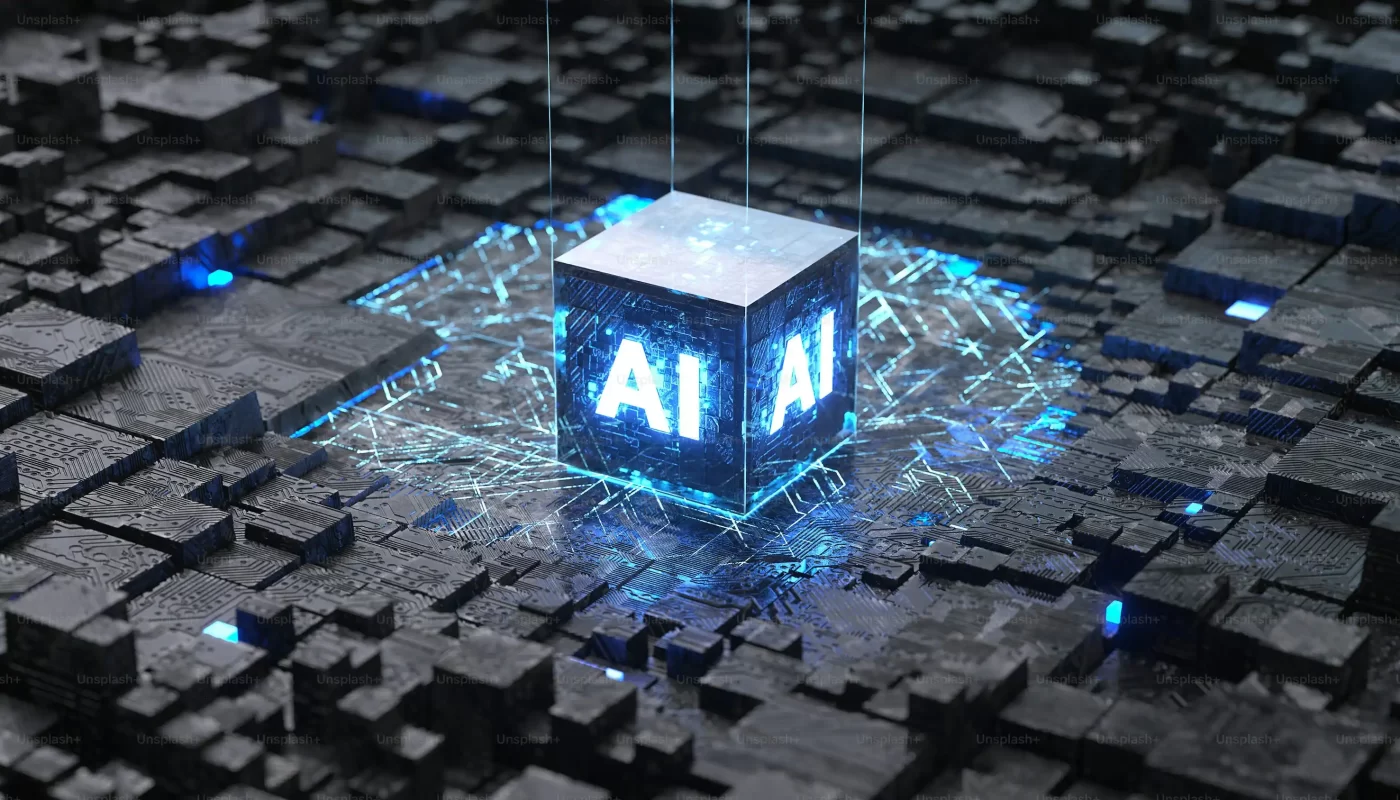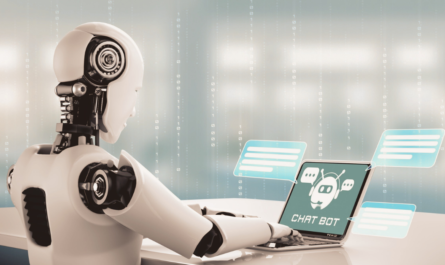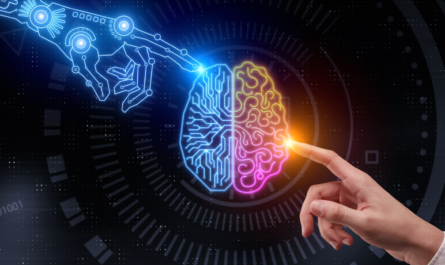In an era of rapid technological advancement, organizations are constantly seeking ways to stay ahead of the curve. One of the most significant shifts is the transformation of data strategies, driven by the rise of Artificial Intelligence (AI). Among the various branches of AI, Generative AI (GenAI) stands out as a powerful tool for not only optimizing but also future-proofing data strategies.
Generative AI refers to a subset of machine learning models, including large language models (LLMs) and other deep learning systems, that are capable of creating new content, be it text, images, audio, or even code, based on the input they receive. With its ability to generate, synthesize, and enhance data across industries, GenAI is revolutionizing how companies approach their data strategies.
This article explores how GenAI can play a pivotal role in future-proofing data strategies, ensuring they remain adaptable, scalable, and innovative in an increasingly complex digital landscape.
1. The Evolving Data Landscape: A Challenge for Traditional Strategies
Data has become the lifeblood of modern organizations, with companies collecting vast amounts of information from various sources—customer interactions, transactional data, social media, IoT devices, and more. However, as the volume, velocity, and variety of data continue to grow, traditional data strategies often struggle to keep pace.
Historically, organizations have relied on structured data (such as databases) and a relatively straightforward approach to data management. Yet, today’s data ecosystem is far more complex, characterized by unstructured data (text, images, videos) and semi-structured data (logs, JSON files). Furthermore, as businesses face increasing pressure to comply with data privacy regulations, secure sensitive data, and drive actionable insights from vast amounts of information, there is a critical need for a more dynamic, flexible, and scalable approach to data management.
This is where GenAI enters the scene—offering advanced capabilities that can not only help organizations manage their data more efficiently but also unlock new possibilities that were previously out of reach.
2. Automation and Efficiency Gains
One of the most immediate benefits of GenAI is its ability to automate complex and time-consuming tasks, which significantly enhances the efficiency of data strategies. In traditional data workflows, tasks such as data cleaning, categorization, annotation, and transformation require significant human intervention. However, Generative AI models can automate these tasks at scale, saving time and reducing the risk of human error.
For example, GenAI models can automatically clean and preprocess raw data—removing inconsistencies, filling in missing values, and identifying outliers. They can also classify data into relevant categories, generate metadata, or even create data augmentation techniques to expand datasets for training machine learning models. With these capabilities, organizations can focus on higher-value activities such as decision-making and strategic analysis, rather than spending time on manual data wrangling.
As data continues to proliferate, organizations will need increasingly efficient tools to manage and process this information. GenAI offers a future-proof solution by providing scalable, automated systems that will only improve over time as these models continue to learn and evolve.
3. Enhanced Data Insights through Generative Models
The ability to generate new, meaningful data from existing datasets is one of the hallmark features of GenAI. This capability can be used in a variety of ways to enhance data insights and drive better decision-making.
For instance, GenAI can be used to generate synthetic data that mirrors the characteristics of real-world data but doesn’t expose sensitive information. This synthetic data can be used for training machine learning models, conducting simulations, or testing hypotheses. As organizations work to balance the need for accurate, high-quality data with concerns about privacy and security, synthetic data generation becomes a vital tool in their data strategies.
Moreover, Generative AI models can be used to identify hidden patterns and correlations in large datasets that would be difficult for humans or traditional analytics tools to uncover. By generating predictions, hypotheses, or potential scenarios, GenAI can help organizations make more informed decisions, reduce uncertainty, and anticipate future trends.
For example, in industries like finance or healthcare, where predicting future outcomes is crucial, GenAI can generate a range of potential scenarios based on historical data, allowing businesses to better plan for uncertainty and volatility.
4. Improved Personalization and Customer Experiences
In today’s hyper-competitive market, providing personalized experiences is no longer a luxury—it’s a necessity. Organizations that can leverage data to offer tailored products, services, and communications stand to gain a significant competitive advantage. GenAI plays a crucial role in this personalization by helping organizations understand their customers at a deeper level.
GenAI models can analyze customer data and generate personalized content or product recommendations in real time, based on individual preferences, browsing history, and demographic information. For example, in e-commerce, GenAI can be used to create personalized email campaigns or product recommendations, ensuring that the content resonates with each customer. By automating the process of personalization, organizations can significantly enhance customer satisfaction and loyalty.
Moreover, GenAI can help organizations go beyond basic personalization to create dynamic, interactive experiences. For instance, generative models can power AI-driven chatbots or virtual assistants that understand natural language and respond in a way that feels human-like, providing customers with timely and relevant information. These capabilities allow businesses to offer 24/7 customer service, improving engagement and fostering stronger relationships.
5. Ensuring Data Privacy and Security
As data privacy concerns continue to mount, organizations are under increasing pressure to protect sensitive information and comply with stringent regulations like GDPR and CCPA. GenAI can assist in future-proofing data strategies by ensuring data privacy and security in several ways.
Firstly, generative models can help anonymize data, ensuring that personally identifiable information (PII) is protected while still allowing businesses to derive meaningful insights. For example, GenAI can generate synthetic datasets that closely resemble real customer data without revealing any sensitive information, allowing organizations to work with data without breaching privacy laws.
Secondly, GenAI can be used to simulate potential security breaches, helping businesses identify vulnerabilities in their data systems. By running simulations of cyberattacks or data breaches, organizations can prepare for potential threats and implement the necessary security measures to protect their data.
6. Scalability and Flexibility
A future-proof data strategy must be scalable and flexible, able to handle the evolving needs of a growing business. GenAI offers significant advantages in this regard, particularly in the realm of data storage, processing, and analysis. Traditional data strategies often struggle to scale efficiently as data volumes grow, leading to bottlenecks and performance issues. However, with GenAI, organizations can create scalable data systems that automatically adjust to increasing data demands.
For instance, cloud-based GenAI platforms can scale resources dynamically, ensuring that organizations can process large datasets without requiring significant infrastructure investments. Additionally, the flexibility of generative models means they can be applied to a wide range of use cases, from natural language processing (NLP) for text analysis to computer vision for image recognition, enabling businesses to address a variety of data challenges with a single platform.
Conclusion
Future-proofing data strategies with Generative AI offers organizations a significant opportunity to stay ahead of the curve in an increasingly data-driven world. By automating tasks, unlocking deeper insights, enhancing personalization, ensuring privacy, and providing scalable solutions, GenAI enables businesses to transform their data strategies into more efficient, adaptable, and innovative systems.
As organizations continue to grapple with the complexities of managing and analyzing data, GenAI will undoubtedly play a central role in shaping the future of data management, ensuring that businesses are not only prepared for the challenges of today but also resilient to the disruptions of tomorrow. In this sense, embracing GenAI is not just about keeping up with the competition—it’s about future-proofing data strategies in a world where data will remain a critical asset for years to come.




